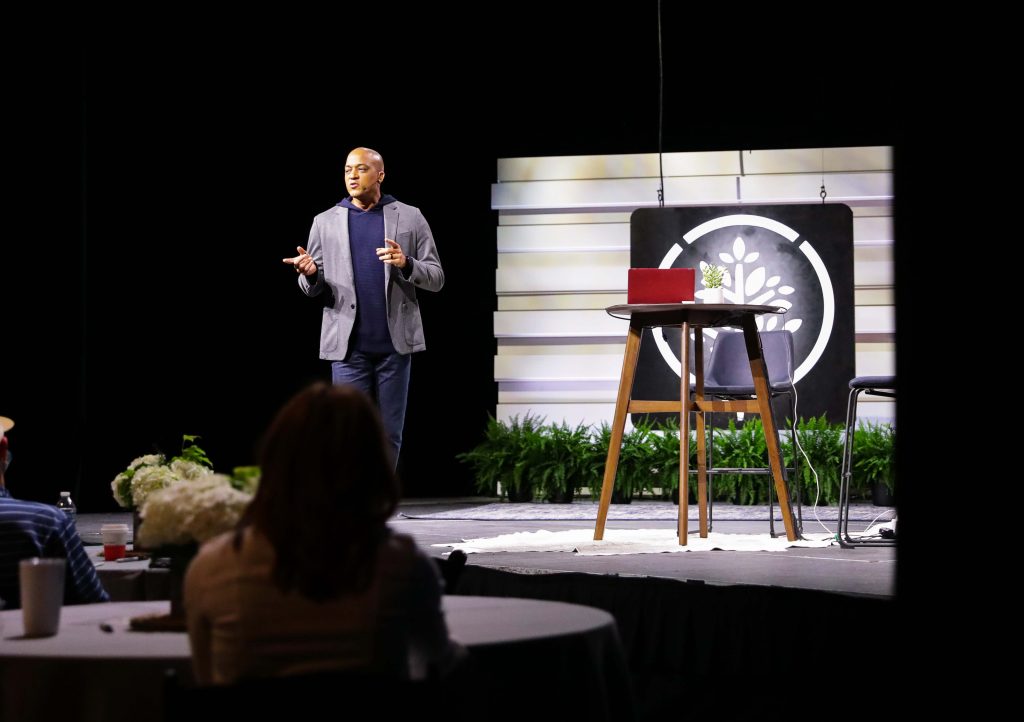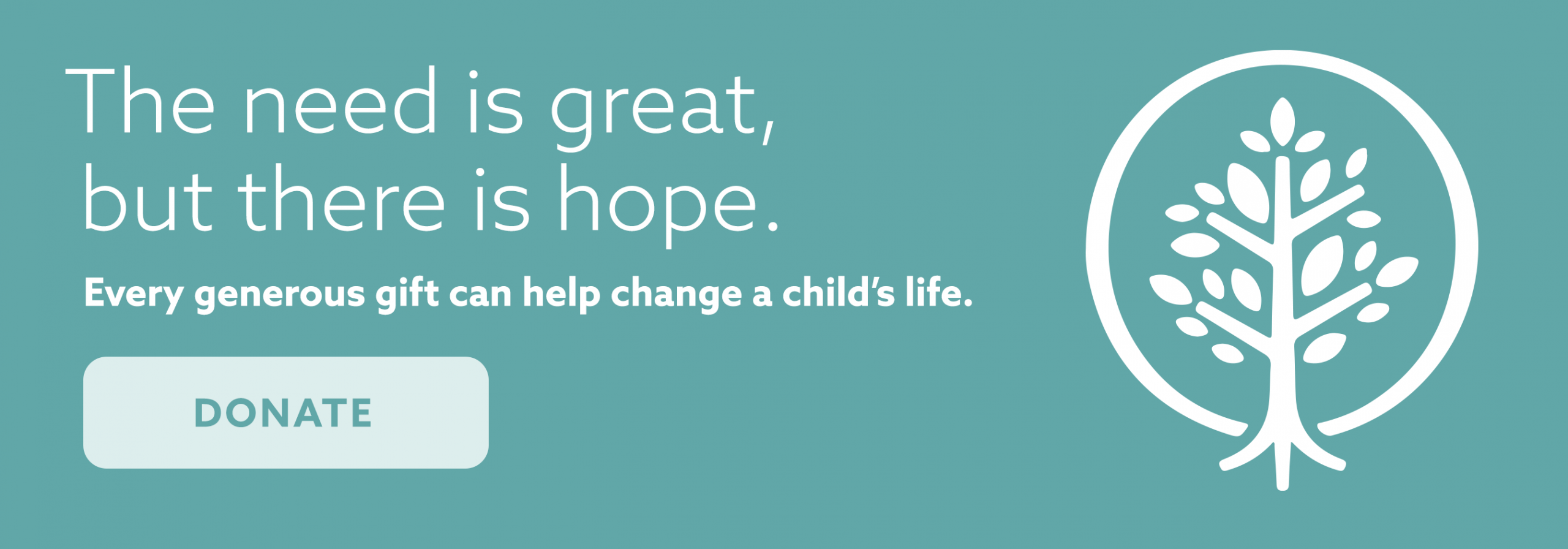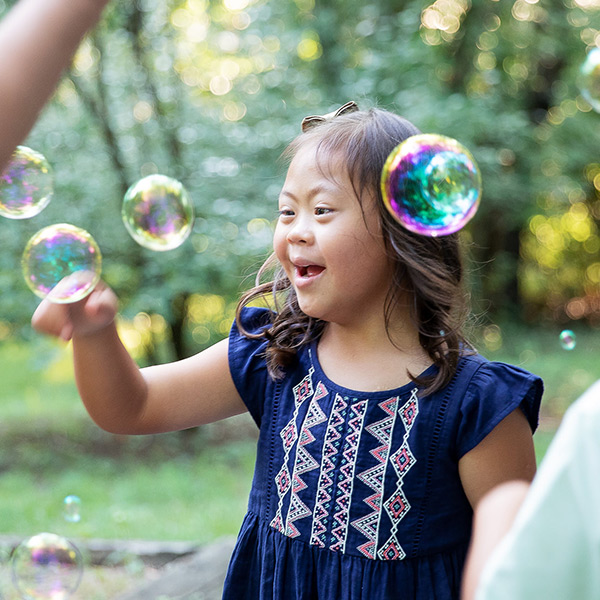Investing in the Future

The day Shaohannah Hope Chapman was placed in Mary Beth Chapman’s arms in a hotel hallway in China, everything changed. First, for Mary Beth, Shaoey, and the Chapman family, but then, as Mary Beth’s desire to help more children and families experience what her family has, Show Hope was born—and that has changed everything for countless children and families.
At first, Show Hope’s focus was almost entirely on Adoption Aid grants. But as the Chapmans continued walking their own adoption journey, learning more about the needs of children after they enter the love, security, and permanency of a family, Show Hope learned too.
The truth is, the adoption journey doesn’t end the day a child is welcomed home; in fact, it is just beginning. Many children who have been orphaned experience early childhood trauma, including abuse, neglect, and loss of a primary caregiver.
“The word trauma comes from the Greek word that actually means ‘wound,'” explained Elise Lowe, the Adoption Education Manager at the National Council for Adoption (NCFA). “For children and teens who experience losses—the loss of being parented by biological parents, the loss of siblings, the loss of their country of origin and culture, at times the loss of a childhood free of abuse and neglect—there are wounds. Just like any physical wound, they need to be treated in order to heal.”
As this understanding grew, Show Hope launched its Pre+Post Adoption Support work to equip parents and professionals with the tools needed to help children heal and thrive. Part of that equipping takes place at Trust-Based Relational Intervention (TBRI) Practitioner Training, led by staff at the Karyn Purvis Institute of Child Development (KPICD) at TCU.
TBRI is an attachment-based, trauma-informed intervention that is designed to meet the complex needs of children impacted by adoption and/or foster care. Developed by Drs. Karyn Purvis and David Cross, TBRI uses Empowering Principles to address physical needs, Connecting Principles for attachment needs, and Correcting Principles to disarm fear-based behaviors.
Each year, through its donors and supporters, Show Hope is able to provide scholarships to professionals, enabling them to attend TBRI Practitioner Training. Elise Lowe is one of those professionals who has received a Show Hope scholarship. The week Elise spent at TBRI training equipped her for various professional roles, including directing international adoption programs, supporting families who have adopted through foster care, and today, in her work at NCFA.
“Even today, more than seven years after the fact, I share with people how my week of TBRI training was truly formative in setting the trajectory of my career over the next decade,” Elise shared. “Being able to learn from Dr. Karyn Purvis and Dr. David Cross directly over that week was a clarifying experience for me. It helped me see that the population I felt called to work with were children from hard places and their families.
“From my perspective, the principles of TBRI have given professionals, families, and adopted individuals themselves a language to speak and a way to connect,” Elise continued. “TBRI strikes a difficult balance. It gives weight to the very real impact that early harm has on children. At the same time, it provides practical strategies and hope, backed by research, that healing is possible.”
In the last fiscal year, Show Hope scholarshiped more than 350 professionals to attend TBRI Practitioner Training—here within the U.S. and across the globe. That means more than 350 communities being resourced and countless children and families impacted.
“Show Hope’s support of practitioner training has been instrumental in starting a wave of trauma-informed systems across the globe,” Daren Jones, Assistant Director of Outreach with the KPICD, explained. “The support of practitioner trainings internationally has allowed countries that have never gotten this knowledge to not only have access to TBRI in a deep way, but this process is oftentimes a part of creating language and a foundational understanding for professionals across the globe.
“Recently, because of Show Hope’s support, there were TBRI Practitioner Training participants who represented 23 countries, and the training was done in three languages—Polish, Russian, and English. [This] support allows for access to information that provides countries with opportunities for individual, family, and generational healing,” Daren said.
The seed that was planted in Mary Beth’s heart all those years ago has grown beyond her wildest imaginings. And as the tree that is Show Hope continues to grow, beginning new initiatives like Medical Care grants and the Hope for the Journey Conference, the central mission remains the same: To care for orphans by engaging the Church and reducing barriers to adoption. And Show Hope firmly believes that caring for orphans includes postadoption care.
“When you support the work of Show Hope, you are not just changing current lives; you are changing generations of families,” Daren shared. “The effects of your support of Show Hope cannot be quantified on this side of heaven. The gift of hope and empowering will be seen for a long time.”


